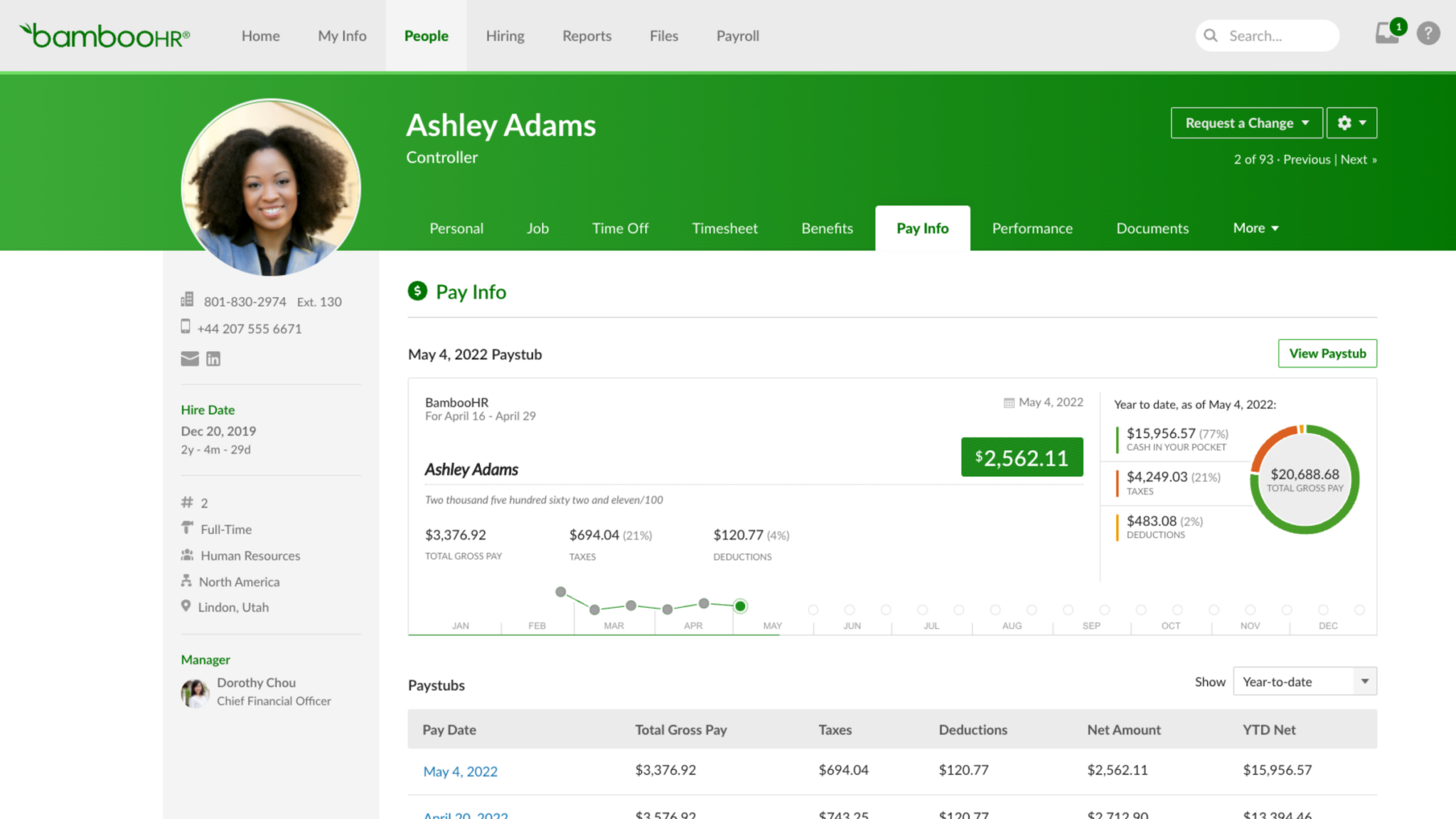Ever wondered what an account executive does in their day-to-day job? In the business world, they are vital cogs who help companies build and maintain relationships with customers.
This blog post will simplify the role of an account executive, make sense of their responsibilities and illustrate how to become one. Stay tuned for a comprehensive guide to your potential future career!
Key Takeaways
- An account executive is a professional responsible for managing client relationships and driving sales.
- Key responsibilities include building strong client relationships, delivering solutions according to customer needs, and developing new business opportunities.
- Skills needed for success as an account executive include excellent communication, sales expertise, relationship building, advertising and marketing know-how, problem-solving abilities, leadership qualities, and customer success orientation.
- The role of an account executive differs from that of an account manager; while executives focus on bringing in new clients and closing deals, managers serve as the main contact for clients after the deal is closed.
Understanding the Account Executive Role
The account executive role involves managing client relations, advertising, and sales deals to maintain existing business relationships and secure new clients.
Check out Best Sales Engagement Tools available to Account Executives
Responsibilities
An Account Executive holds crucial responsibilities that drive the success of an organization. Key duties typically include:
- Building and maintaining strong, long-lasting client relationships.
- Acting as a liaison between customers and cross-functional internal teams.
- Ensuring the timely and successful delivery of solutions according to customer needs.
- Developing new business opportunities from existing clients, prospects, and partners.
- Meeting or exceeding sales targets by promoting products, services, and promotional activities.
- Collaborating with the sales team to identify and grow opportunities within the territory.
- Preparing reports on account status for stakeholders.
- Managing sensitive issues to maintain customer satisfaction and develop future sales potential.
- Nurtifying public relations to promote company’s image in a positive way.

Skills Needed
Succeeding as an Account Executive requires a particular set of skills. These encompass both interpersonal and technical abilities:
| Skill | Description |
|---|---|
| Excellent Communication | Crucial for explaining product or service details and addressing client concerns effectively. |
| Sales Expertise | Essential for closing sales deals and contributing to revenue growth. |
| Relationship Building | Key to establishing and maintaining strong business connections with new and existing clients. |
| Advertising and Marketing Know-How | Understanding of advertising principles, marketing strategies, and promotional activities to aid client consultations. |
| Financial Acumen | Enables crafting of deals that align with client budgets while ensuring company profitability. |
| Public Relations Skills | Knowledge of PR strategies and techniques due to involvement in public relations activities. |
| Problem-Solving Abilities | Ability to develop creative solutions for unique challenges presented by different clients. |
| Leadership Qualities | Important for managing sales teams and ensuring effective personnel management. |
| Customer Success Orientation | Focusing on strategies that not only meet but exceed customer expectations to foster satisfaction and loyalty. |
Account Executive vs. Account Manager
The roles of an Account Executive and Account Manager often get confused due to their overlapping responsibilities and goals. However, they’re distinct roles with their own unique focuses and tasks. Consider the following comparison:
| Role | Primary Responsibility | Key Skills Required |
|---|---|---|
| Account Executive | Focuses on bringing new clients to the company, building client relationships, and closing deals. | Strong sales abilities, excellent communication skills, negotiation skills, and ability to work under pressure. |
| Account Manager | Serves as the main contact for clients once the deal is closed, ensuring client satisfaction, and nurturing long-term relationships. | Exceptional customer service skills, problem-solving abilities, excellent communication skills, and detail-oriented. |
Understanding these differences will help in establishing a clear career path and setting appropriate expectations for those considering either role.
Advantages and Disadvantages of Being an Account Executive
Being an Account Executive offers job benefits such as high earning potential and opportunities for advancement, but it can also be stressful due to the pressure of meeting sales targets and managing client relationships.

Job Benefits
An account executive role comes with several job benefits:
| Benefit | Description |
|---|---|
| Competitive Salary | Typically higher than entry-level positions in other industries. |
| Commission and Bonuses | Opportunities for additional income based on sales performance. |
| Growth Potential | Can advance to higher-level positions with experience and success. |
| Networking Opportunities | Building relationships for future business and professional connections. |
| Variety in the Workday | Working on diverse projects and with different clients for engaging work. |
| Skills Development | Developing valuable skills like negotiation, communication, and problem-solving. |
| Team Collaboration | Collaborating with cross-functional teams, fostering teamwork and shared learning. |
| Career Flexibility | Flexibility in career options with opportunities in various industries. |
Stressful Aspects
Account executive roles can be demanding and come with certain stressors. Here are some stressful aspects to consider:
| Challenge | Description |
|---|---|
| Meeting Sales Targets | Pressure to consistently perform at a high level to meet sales objectives. |
| Building and Maintaining Client Relationships | Challenges in developing and sustaining strong relationships, especially with demanding clients. |
| Dealing with Rejection | Facing rejection when securing new clients or closing deals can be disheartening. |
| Handling Complex Projects | Managing multiple projects simultaneously, each with different requirements and deadlines. |
| Working in a Competitive Industry | Pressure to outperform competitors in a highly competitive sales industry. |
| Balancing Workload | Managing a heavy workload effectively, prioritizing tasks to ensure efficiency. |
| Dealing with Uncertainty | Navigating through market fluctuations and changes in client needs that create job instability. |
| Managing Stressful Situations | Maintaining composure during high-pressure situations or while interacting with difficult clients. |
Account Executive Job Description
As an account executive, your main responsibility is to manage client relationships and drive sales for a company. You will be the primary point of contact for existing clients, ensuring their needs are met and resolving any issues that arise.
Additionally, you will also work on acquiring new clients by identifying potential leads and pitching the company’s products or services. In this role, it is crucial to have excellent communication and interpersonal skills to build strong business relationships.
You will collaborate with the sales team, marketing department, and other key stakeholders to develop promotional activities and strategies that effectively promote the company’s offerings.
Your ultimate goal as an account executive is to close sales deals while maintaining long-term client satisfaction.
How to Become an Account Executive
To become an Account Executive, you will need relevant education and experience, develop the necessary skills, and take advantage of professional development opportunities. Find out more about the path to becoming an Account Executive in our blog post!

Education and Experience
To become an account executive, you will need relevant education and experience. This includes:
- A bachelor’s degree in business, marketing, or a related field.
- Completion of internships or entry – level positions in sales or advertising.
- Strong knowledge of financial services and marketing strategies.
- Excellent communication and negotiation skills.
- Familiarity with promotional activities and closing sales deals.
- Experience in client relations and maintaining business relationships.
- Ability to work effectively within a sales team.
Developing Relevant Skills
To become an account executive, it is important to develop relevant skills that will help you succeed in the role. Here are some key skills to focus on:
| Skill | Description |
|---|---|
| Communication | Effectively conveying information and ideas, both verbally and in writing, to clients and colleagues. |
| Relationship Building | Creating and maintaining strong connections with clients by understanding and meeting their needs. |
| Sales Skills | Utilizing persuasion and negotiation abilities to close sales and generate revenue. |
| Analytical Thinking | Examining data to make informed decisions, which includes understanding market dynamics and customer behaviors. |
| Time Management | Efficiently managing and prioritizing various tasks to meet deadlines and manage workflow. |
| Adaptability | Being open and responsive to new strategies, technologies, and industry shifts. |
| Problem-Solving | Deploying creative thinking to navigate challenges and maintain client satisfaction. |
Professional Development Opportunities
Account executives have various professional development opportunities to enhance their skills and advance in their careers. These include:
| Development Opportunity | Description |
|---|---|
| Training Programs | Specialized training in sales techniques, customer relationship management, and relevant industry knowledge. |
| Workshops and Seminars | Opportunities to learn from industry experts, discover emerging trends, and network through participation in workshops and seminars. |
| Conferences and Trade Shows | Platforms to stay abreast of the latest products, technologies, and strategies in the field by attending relevant events. |
| Certifications | Pursuing recognitions like Certified Sales Professional (CSP) or Certified Key Account Manager (CKAM) to validate and showcase expertise. |
| Mentorship Programs | Engagement with experienced mentors for guidance, support, and insights to navigate and propel one’s career path. |
| Continuing Education | Enrolling in courses or further studies in areas like marketing, finance, or communication to broaden knowledge. |
| Networking Events | Participating in industry conferences and joining professional organizations to forge new client relationships and uncover business opportunities. |
Salary of an Account Executive
An Account Executive’s salary can greatly vary depending on the industry, location, and level of experience. Below is an average salary range for Account Executives in the United States.
| Industry | Entry Level (0-2 years) | Mid Level (3-5 years) | Senior Level (6+ years) |
|---|---|---|---|
| Advertising | $47,000 – $60,000 | $60,000 – $75,000 | $75,000 – $100,000 |
| Software Services | $55,000 – $70,000 | $70,000 – $85,000 | $85,000 – $120,000 |
| Finance | $60,000 – $80,000 | $80,000 – $100,000 | $100,000 – $150,000 |
| Healthcare | $50,000 – $65,000 | $65,000 – $80,000 | $80,000 – $120,000 |
These salary figures are estimates and tend to fluctuate due to factors such as a company’s size and revenue, geographical location, and the executive’s negotiation skills. While fixed salary is a major component, one cannot overlook additional benefits such as commissions, bonuses, and other non-monetary perks.
Conclusion
In conclusion, an account executive is a professional who is responsible for managing client relationships and driving sales. They play a crucial role in advertising, marketing, and public relations by promoting products or services to existing and new clients.
With their skills in sales closing and strategic planning, account executives contribute significantly to the success of businesses in various industries.
Frequently Asked Questions
What is an account executive?
An account executive is a professional who manages client accounts and serves as the main point of contact between the company and its customers.
What are the responsibilities of an account executive?
The responsibilities of an account executive typically include building relationships with clients, identifying their needs, developing strategies to meet those needs, and ensuring customer satisfaction.
What skills are required to be a successful account executive?
To be a successful account executive, you should have strong communication and interpersonal skills, excellent problem-solving abilities, sales expertise, and the ability to multitask and work under pressure.
Is there any specific education or training required for becoming an account executive?
While there is no specific educational requirement for becoming an account executive, a bachelor’s degree in business administration or a related field can be beneficial. Many companies also prefer candidates with previous sales or customer service experience.
What career opportunities are available for an account executive?
As an account executive gains experience and builds a network of clients, they can often advance into management roles such as senior account manager or sales director within their organization. Additionally, some may choose to transition into other areas of business such as marketing or consulting.
Author
-

Rajat, a CFA and seasoned SpotSaaS writer, thrives at the intersection of technology and finance. Drawing from his expertise in marketing and product management, he helps users navigate the complex software landscape to find solutions that align with their business goals. By blending his deep understanding of financial decision-making with a passion for emerging technologies, Rajat crafts insightful content that empowers businesses to choose software that drives growth, efficiency, and innovation. His work bridges the gap between technical possibilities and practical business needs, making software selection a strategic advantage for his audience.
View all posts




